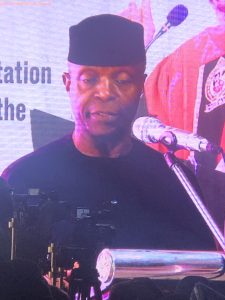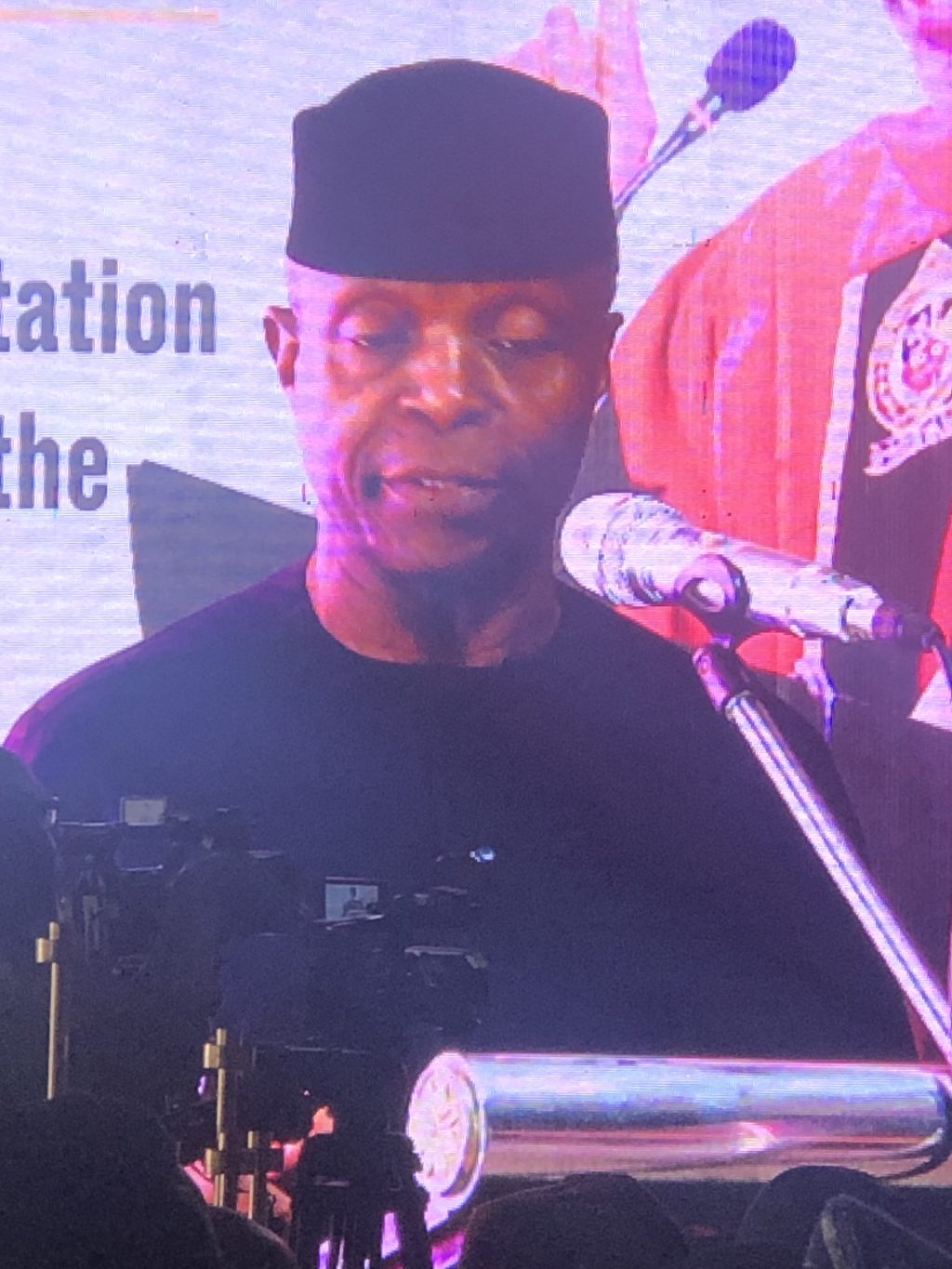
Osinbajo advocates decolonization, reform of Nigeria’s justice system
By Mahmood Olayinka Alaya
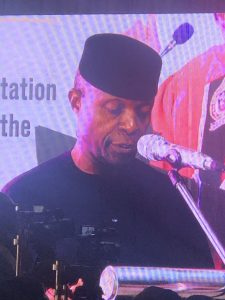
A Former Vice President of Nigeria, Professor Yemi Osinbajo, has called for the decolonisation and comprehensive reform of Nigeria’s justice administration to make it more reflective of local realities and history.
Professor Osinbajo made this call while delivering his address at the Second Kwara State University (KWASU) Professor Yusuf Olaolu Ali, SAN Annual Law Lecture, held at the Atlantic Event Centre, Offa Garage Road, Ilorin, Kwara State, themed “Towards Decolonising Legal Briefs: Effective Implementation of the Local Content Law for the Benefit of Nigerian Lawyers?”, and brought together legal scholars, practitioners, and students from across the country.
Professor Osinbajo stressed that despite political independence, Nigeria remains bound by colonial legal legacies that continue to shape the nation’s judicial outlook and education.
“ Nigeria has been enslaved by colonial independence and our legal education and judicial system must begin to reflect our history, our realities, and our values.
“ Decolonising the law means rethinking how we teach, interpret, and practice justice in Nigeria”, he said.
He emphasised the need to review the curriculum of law faculties in Nigerian universities to include indigenous jurisprudence and historical consciousness, noting that true reform must begin from the classroom.
Delivering the lecture titled “The Brief or the Country — A Lesson in History and Memory,” a human rights activist and Senior Advocate of Nigeria, Professor Chidi Anselm Odinkalu, echoed Professor Osinbajo’s sentiments, arguing that legal practice divorced from historical understanding is incomplete.
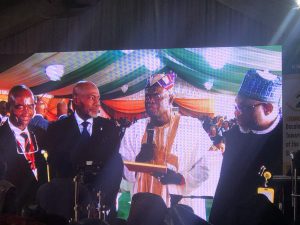
“ Law is a journey in memory. Teachers of law cannot teach law without teaching history. Our system must stop pretending that colonialism is over when our institutions still operate with colonial mentalities”, he said.
Odinkalu, who is a Professor of Practice in International Human Rights Law at the Fletcher School of Law and Diplomacy, Tufts University, USA, warned that Nigeria’s judiciary remains vulnerable to political interference, which undermines its independence and public trust.
He further called for deliberate investment in strong and independent institutions, noting that the rule of law cannot thrive in an environment where political actors manipulate judicial outcomes.
Speaking on Nigeria’s role in African leadership, Professor Odinkalu urged the country to take a more proactive stance in regional affairs, particularly in Sudan, where he noted Nigeria has one of the largest diaspora populations, tracing this back to the migration of members of the Muhammad Bello royal family from Sokoto to Sudan.
In his welcome address, the Vice-Chancellor of KWASU, Professor Shaykh-Lukman Jimoh, reaffirmed the university’s commitment to intellectual discourse, innovation, and academic excellence.
He praised the honouree of the lecture, Professor Yusuf Olaolu Ali, SAN, describing him as a trusted ally of the university and a man of deep generosity who has handled numerous legal briefs for the institution pro bono.
“ At KWASU, we uphold zero tolerance for the violation of laws and regulations. Our university operates strictly within the framework of its regulatory bodies, ensuring transparency and accountability in all our activities”, he said.
Also speaking, the Dean of the Faculty of Law, Professor Yahyah Duro Hambali, explained that the annual lecture series was instituted in honour of Professor Ali for his immense contributions to the establishment and growth of the Faculty of Law and his philanthropic support for legal education in Nigeria.
He announced that the Tertiary Education Trust Fund (TETFUND) had approved the 2024 intervention fund for the construction of a new faculty building, saying that the proposed structure will include a moot court, lecture theatres, an auditorium, and administrative offices.
Professor Hambali appealed to senior members of the legal profession and alumni to support the ongoing development by donating additional buildings and facilities to enhance the faculty’s infrastructure.
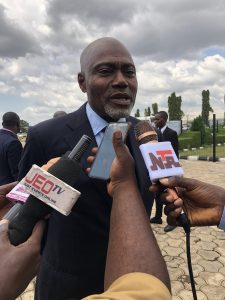
While appreciating the personalities and the university for the lecture, the honouree, Professor Yusuf Ola Olu Ali, SAN, said all nations must have a rallying point which Nigeria lacks.
He added that the only time Nigerians truly unite is during international football matches, a fleeting moment of togetherness that quickly fades afterward.
Professor Ola Olu Ali urged citizens to confront the reality of systemic failures instead of romanticizing the past, noting that the country still exhibits all the parameters of failure
END




